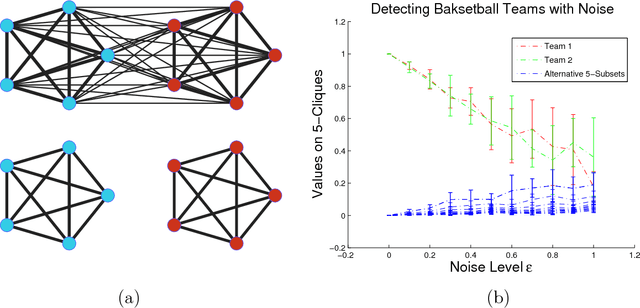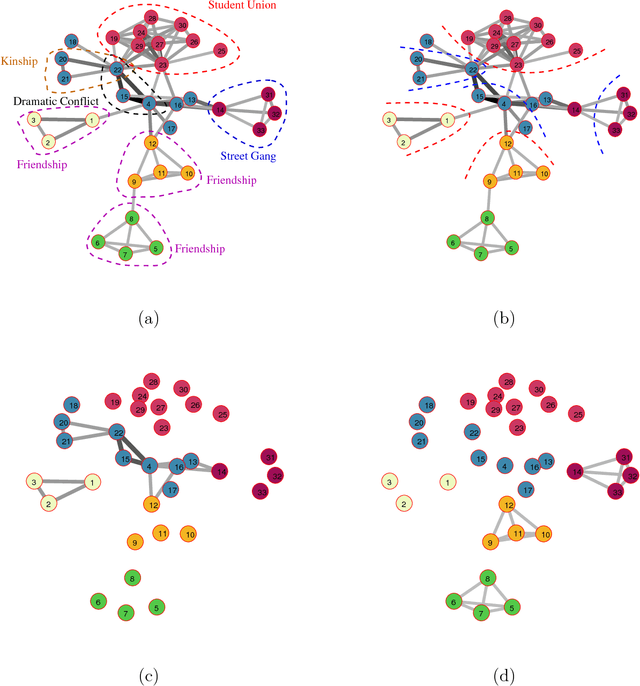Compressive Network Analysis
Paper and Code
Apr 24, 2011



Modern data acquisition routinely produces massive amounts of network data. Though many methods and models have been proposed to analyze such data, the research of network data is largely disconnected with the classical theory of statistical learning and signal processing. In this paper, we present a new framework for modeling network data, which connects two seemingly different areas: network data analysis and compressed sensing. From a nonparametric perspective, we model an observed network using a large dictionary. In particular, we consider the network clique detection problem and show connections between our formulation with a new algebraic tool, namely Randon basis pursuit in homogeneous spaces. Such a connection allows us to identify rigorous recovery conditions for clique detection problems. Though this paper is mainly conceptual, we also develop practical approximation algorithms for solving empirical problems and demonstrate their usefulness on real-world datasets.
 Add to Chrome
Add to Chrome Add to Firefox
Add to Firefox Add to Edge
Add to Edge